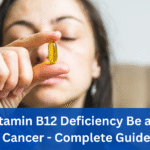In the journey toward achieving a desirable body shape and maintaining optimal health, two approaches often dominate the discussion: Liposuction vs. Healthy Diet. Both offer distinct benefits and limitations, and individuals seeking weight loss or aesthetic improvements may wonder which path is more effective or appropriate for their needs.
While liposuction is a surgical method that removes fat from specific areas of the body, a healthy diet is a long-term lifestyle change focused on balanced nutrition and caloric control. This article aims to compare these two methods based on effectiveness, sustainability, health implications, cost, psychological impact, and overall long-term benefits.
Understanding Liposuction
Liposuction is a cosmetic surgical procedure that removes localized fat deposits through suction. It is typically used to contour areas such as the abdomen, thighs, arms, buttocks, and neck. Performed by a plastic surgeon, the procedure involves inserting a cannula (a thin tube) into the target area to break up and suction out fat cells.
There are several types of liposuction, including:
-
Tumescent Liposuction: The most common method, where a saline solution with anesthesia and epinephrine is injected to reduce bleeding and discomfort.
-
Ultrasound-Assisted Liposuction (UAL): Uses ultrasound waves to liquefy fat for easier removal.
-
Laser-Assisted Liposuction (SmartLipo): Uses laser energy to melt fat.
-
Power-Assisted Liposuction (PAL): Uses a vibrating cannula to break down fat more efficiently.
It’s important to note that liposuction is not a weight-loss method. Instead, it is used for body sculpting and fat redistribution.
Understanding a Healthy Diet
A healthy diet refers to a nutritionally balanced eating pattern that includes a variety of food groups in appropriate proportions. Key components typically include:
-
Fruits and vegetables: Rich in fiber, vitamins, and antioxidants.
-
Whole grains: Complex carbohydrates that provide energy and promote satiety.
-
Lean proteins: Such as chicken, fish, tofu, and legumes for muscle maintenance and metabolic health.
-
Healthy fats: From sources like nuts, avocados, and olive oil.
-
Limited processed foods and sugars: To reduce the risk of chronic diseases.
A healthy diet often accompanies other lifestyle changes like regular physical activity, adequate sleep, and stress management, leading to gradual and sustainable weight loss and health improvements.
Liposuction vs. Healthy Diet: Effectiveness in Fat Reduction
Liposuction:
It delivers immediate results in fat removal. Patients can lose inches in targeted areas within days to weeks following the procedure, depending on the amount of fat removed and the body’s healing response.
-
Pros:
-
Quick and visible results.
-
Effective for contouring areas resistant to diet and exercise.
-
Can boost confidence in appearance quickly.
-
-
Cons:
-
Not effective for overall weight loss.
-
Does not prevent fat accumulation in untreated areas.
-
Requires post-operative recovery and may involve swelling, bruising, and discomfort.
-
Healthy Diet:
A healthy diet results in gradual fat reduction across the entire body. It supports overall weight loss and long-term maintenance when combined with exercise and consistent habits.
-
Pros:
-
Improves overall health, not just appearance.
-
Reduces visceral fat, which is associated with chronic diseases.
-
Can be maintained lifelong with the right motivation and guidance.
-
-
Cons:
-
Results may take weeks or months to become noticeable.
-
Requires discipline, consistency, and often a change in mindset.
-
May not target specific “trouble areas” effectively.
-
Sustainability and Long-Term Outcomes
Liposuction:
While liposuction offers immediate cosmetic changes, its long-term success depends on lifestyle choices post-surgery. If a patient returns to poor eating habits and a sedentary lifestyle, fat can return in untreated areas.
Studies show that liposuction does not alter the body’s ability to store fat. Without lifestyle changes, patients may regain weight, sometimes in less desirable locations, such as visceral fat around organs.
Healthy Diet:
A healthy diet promotes sustainable and holistic health outcomes. Unlike liposuction, it addresses the root causes of weight gain, such as poor nutrition and metabolism dysfunction.
People who adopt a long-term healthy eating plan often experience:
-
Better cardiovascular health.
-
Lower risk of diabetes, cancer, and stroke.
-
Improved digestion, energy levels, and mood.
-
Sustainable weight management.
However, success relies heavily on education, motivation, and support systems.
Health Risks and Complications
Liposuction Risks:
Although generally safe when performed by a qualified surgeon, liposuction carries surgical risks, including:
-
Infection
-
Blood clots
-
Nerve damage
-
Internal organ puncture (rare)
-
Fluid accumulation (seroma)
-
Scarring and uneven contours
Patients must be carefully screened for eligibility and follow strict aftercare guidelines to minimize complications.
Healthy Diet Risks:
A healthy diet, when properly designed, carries minimal to no health risks. However, poorly planned diets or extreme eating patterns (e.g., very low-calorie diets, fad diets) can lead to:
-
Nutrient deficiencies
-
Disordered eating behaviors
-
Metabolic slowdown
-
Mood swings and fatigue
Working with a dietitian or nutritionist can help tailor an effective and safe plan.
Psychological and Emotional Impacts
Liposuction:
For many, liposuction provides a confidence boost by quickly improving appearance. However, the psychological effects are not always positive or long-lasting.
-
Potential benefits:
-
Enhanced self-esteem
-
Increased motivation to maintain a healthy lifestyle
-
-
Potential drawbacks:
-
Unrealistic expectations
-
Body dysmorphia or dissatisfaction if results are not as expected
-
Dependency on cosmetic procedures
-
Patients may need psychological support to manage body image issues before and after surgery.
Healthy Diet:
A healthy diet is often associated with positive mental health outcomes due to the stabilizing effects of balanced nutrition on brain function.
-
Benefits include:
-
Improved mood and focus
-
Greater sense of control over one’s health
-
Long-term satisfaction from achieving goals naturally
-
However, social pressures, lack of results, or misinformation can lead to frustration or anxiety without proper guidance.
Cost Comparison
Liposuction:
The average cost of liposuction varies by region, surgeon experience, and treated areas. In the U.S., the procedure typically costs $3,000 to $10,000.
Additional costs may include:
-
Anesthesia fees
-
Post-operative garments
-
Follow-up consultations
-
Time off work for recovery
Insurance generally does not cover cosmetic procedures unless medically necessary.
Healthy Diet:
The cost of a healthy diet is more variable and depends on food choices, geographic location, and whether professional guidance is used.
-
Grocery bills may increase or decrease depending on diet changes.
-
Nutritionist or dietitian services range from $50 to $200 per session.
-
Overall, it’s a more affordable and long-term investment compared to surgery.
Ideal Candidates: Who Should Choose What?
Liposuction is ideal for:
-
Individuals near their ideal body weight but with stubborn fat pockets.
-
People seeking body contouring rather than weight loss.
-
Those in good physical health and with realistic expectations.
A Healthy Diet is ideal for:
-
Individuals looking to lose significant weight.
-
Those interested in long-term wellness and disease prevention.
-
People willing to commit to lifestyle changes for holistic improvement.
Combining Both Approaches: A Balanced Strategy
While often compared, liposuction and a healthy diet are not mutually exclusive. In fact, the best outcomes are often seen when the two are combined thoughtfully.
-
Liposuction can jumpstart confidence and body image.
-
A healthy diet is essential for maintaining results and improving overall health.
-
Post-liposuction, adopting a balanced diet prevents fat regain and supports healing.
Plastic surgeons and nutritionists often work together to help patients transition from cosmetic results to long-term health.
Cultural and Social Perceptions
Liposuction and dieting both carry social stigmas and perceptions that influence decision-making.
-
Liposuction is sometimes seen as a “shortcut” or vanity-driven.
-
Dieting is often viewed as the more “honorable” or “disciplined” path.
These narratives can create shame or guilt around either choice. It’s crucial to recognize that every individual’s body, goals, and motivations are different. Both approaches are valid when chosen for the right reasons and with informed understanding.
Final Verdict: Liposuction vs. Healthy Diet?
There is no universal answer to which is better—liposuction or a healthy diet—as both serve different purposes.
Choose Liposuction if:
-
You are already close to your ideal weight.
-
You want to remove fat from specific areas resistant to exercise.
-
You understand the risks and have realistic expectations.
Choose a Healthy Diet if:
-
You seek sustainable weight loss and overall health improvement.
-
You’re willing to change long-term habits.
-
You prefer a natural, non-invasive approach.
Ultimately, the best outcomes are often seen when individuals combine medical intervention with lifestyle changes, creating a comprehensive approach to health, fitness, and body satisfaction.
Conclusion
The path to a better body and improved health is deeply personal. While liposuction offers rapid cosmetic changes, a healthy diet provides the foundation for lifelong wellness. Each has its place in the spectrum of health and beauty, and neither should be dismissed outright. Making an informed choice based on individual goals, health status, and lifestyle preferences is key to achieving not just a slimmer body, but a healthier and happier life.
FAQs: Liposuction vs. Healthy Diet
1. Is liposuction a good method for weight loss?
No. Liposuction is a cosmetic procedure for body contouring, not a method for significant weight loss.
2. Can fat come back after liposuction?
Yes. If you gain weight post-surgery, fat can return, often in untreated areas. Maintaining a healthy lifestyle is crucial.
3. How quickly will I see results with a healthy diet?
Results vary, but most people notice changes within 4–8 weeks of consistent healthy eating and exercise.
4. Is a healthy diet more sustainable than liposuction?
Yes. A balanced diet supports long-term weight management and overall health, unlike the temporary fix of surgery.
5. Which is safer: liposuction or a healthy diet?
A healthy diet is generally safer. Liposuction carries surgical risks such as infection, blood clots, and nerve damage.
6. Can I combine liposuction with a healthy diet?
Absolutely. Many experts recommend adopting a healthy diet post-liposuction to maintain results and improve health.
7. How much does liposuction cost compared to dieting?
Liposuction can cost $3,000–$10,000. Healthy eating may involve minor increases in grocery costs or professional guidance.
8. Will a healthy diet help me target belly fat like liposuction?
Diet reduces overall body fat, including belly fat, but not as precisely or quickly as liposuction.
9. Who should avoid liposuction?
Those with significant obesity, poor health, or unrealistic expectations should avoid or delay liposuction.
10. What’s better for mental health: Liposuction vs. Healthy Diet?
A healthy diet often improves mood and self-esteem over time. Liposuction can boost confidence but may also lead to dissatisfaction if expectations aren’t met.





